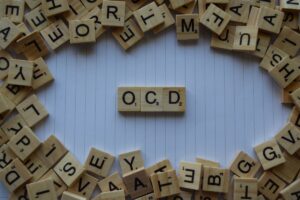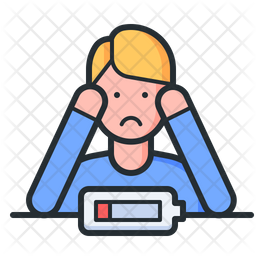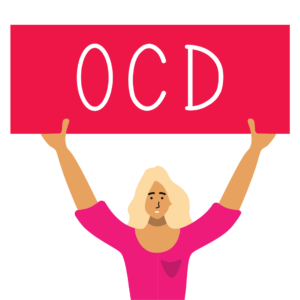It’s often said that ignorance is bliss. But when it comes to mental illness, this saying simply isn’t true. The more knowledge we have about a particular condition, the better equipped we are to fight it. In today’s blog post, we will be discussing obsessive-compulsive disorder (OCD) in adults. We will be talking about what OCD is, the symptoms of adult OCD, and how to get help if you are struggling with this condition.
Contents
Defining OCD In Adults

OCD, also popularly known as the “germaphobe’s disorder”, is an anxiety disorder that is characterized by intrusive, unwanted thoughts (obsessions) and repetitive, compulsive behaviors (rituals) that are aimed at reducing anxiety caused by the obsessions. People with OCD often realize that their thoughts and behaviors are irrational, but they feel unable to control them. OCD can have a significant impact on a person’s quality of life, causing them to miss work, avoid social situations, and become isolated from friends and family.
OCD in adults doesn’t just develop overnight. It is a gradual process that usually begins in childhood or adolescence. However, the symptoms of OCD may not be apparent until adulthood. This is because adults with OCD often develop more sophisticated and elaborate rituals than children with OCD. They also tend to be more secretive about their compulsions, which can make it harder for family and friends to detect the problem.
Moreover, it is also important to understand that OCD is not simply a case of being neat or organized. While people with OCD may have a strong need for symmetry and order, this does not mean that they enjoy cleaning or organizing. In fact, people with OCD often dread these activities because they feel like they can never do them perfectly. This can lead to even more anxiety and distress.
Prevalence

Now that we know a little bit more about what OCD is, let’s talk about how common it is. According to the International OCD Foundation, OCD affects approximately one in every 100 adults. This means that there are approximately three million adults in the United States who live with OCD.
It is also important to note that OCD is not evenly distributed across the population. Women are more likely to be diagnosed with OCD than men, and the condition is also more common in people who have a family member with OCD. People of all races and ethnicities can be affected by OCD, but the condition is most commonly diagnosed in Caucasians.
Moreover, the prevalence can also vary depending on factors such as age, gender, and race. However, it is important to remember that OCD can affect anyone regardless of these demographic factors. It is a myth that OCD is a “white person’s disease”. The disorder can be a very complex and debilitating condition for people of all backgrounds.
Symptoms
Now that we know a little bit more about what OCD is and how common it is, let’s talk about the symptoms of adult OCD. The symptoms of OCD can be divided into two categories: obsessions and compulsions. Obsessions are intrusive, unwanted thoughts, that can be a source of great anxiety. Compulsions are repetitive behaviors or rituals that are aimed at reducing the anxiety caused by the obsessions. While compulsions are often viewed as a positive coping mechanism, they can actually end up causing more anxiety in the long run.
Obsessions
Some common obsessions include:
- Fear of contamination or germs
- Excessive concern with order or symmetry
- Unwanted sexually explicit or violent thoughts
- Intrusive thoughts about blasphemy or religious taboos
- Fear of losing control or harming others
Compulsions
Some common compulsions include:
- Excessive hand washing or bathing
- Constant checking of doors, locks, or appliances
- Counting, tapping, or repeating certain words or phrases
- Arranging objects in a specific order or pattern
- Excessive cleaning or grooming
- Hoarding or collecting objects
As you can see, the symptoms of OCD can vary significantly from person to person. Some people may only have a few obsessions, while others may have many. The same is true for compulsions. Some people may have very simple compulsions, while others may engage in complex rituals that take up a lot of time and energy.
People with OCD often realize that their thoughts and behaviors are irrational, but they feel unable to control them. This can lead to a great deal of distress, and can significantly impact a person’s quality of life.
Impacts Of OCD In Adults
Adults are far more complex and their lives are far more complicated than children. This can make it harder to manage the symptoms of OCD. This is because adults typically have more responsibilities and obligations than children. For example, an adult with OCD may have a job, a family, and other commitments that they cannot simply walk away from. This can make it very difficult to manage the symptoms of OCD.
In addition, adults with OCD often experience a great deal of shame and embarrassment about their condition. This is because OCD is often seen as a childish or irrational disorder. This can lead to people with OCD feel isolated and alone. Some of the aspects of an adult’s life that may be impacted by OCD include the following domains.
Physical health
It is no secret that our physical and mental health are interconnected. This means that when our mental health is suffering, our physical health often suffers as well. This is particularly true for adults with OCD. The stress and anxiety caused by the disorder can lead to a number of physical health problems, such as:

- Headaches
- Digestive problems
- Muscle tension and pain
- Fatigue
- Insomnia
- Stroke
- Heart problems
Moreover, some of the compulsions may also have a negative impact on physical health. For example, excessive hand washing can lead to skin problems, and compulsive cleaning can lead to respiratory problems. Likewise, people with OCD may avoid physical activity due to fear of contamination, which can lead to weight gain and other health problems.
Emotional well-being
Battling a disorder as consuming and draining as OCD can take a toll on a person’s emotional well-being. It is not uncommon for adults with OCD to experience:
- Anxiety
- Depression
- Anger
- Overwhelm
- Worthlessness
- Guilt
- Shame
Many people with OCD also suffer from other mental health disorders, such as eating disorders, body dysmorphic disorder, and social anxiety disorder. This can make it even harder to manage the symptoms of OCD. All these factors and emotions combined can lead to suicidal thoughts and behaviors in some people with OCD.
Productivity

As mentioned before, adults have more commitments and responsibilities than children. This can make it very difficult to manage the symptoms of OCD and still be productive. For example, someone with OCD may spend hours every day engaged in compulsions, which can interfere with work, school, and other obligations. In addition, the anxiety and stress caused by the disorder can make it hard to concentrate or focus on tasks. As a result, people with OCD may have difficulty meeting deadlines, completing projects, or keeping up with their peers.
Moreover, the shame and embarrassment associated with the disorder can lead to social isolation, which can further impact productivity. For example, someone with OCD may avoid social situations, such as parties or work events, out of fear of being exposed. This can make it hard to build and maintain relationships, which is essential for success in many fields.
The need for perfection, precision, or control may also lead to problems with productivity. For example, someone with OCD may spend hours editing a paper or redoing a project that is already perfectly fine. This can lead to missed deadlines and lost opportunities.
Finances
Finances are an integral part of adulthood, but they can be a source of great stress for adults with OCD. The disorder can lead to problems in all areas of financial management, including:
- Budgeting
- Saving
- Investing
- Paying bills
The compulsions and rituals associated with OCD can take up a lot of time and energy, which can interfere with work and other obligations. This can lead to lost income and mounting bills. In addition, the anxiety and stress caused by the disorder can make it hard to focus on tasks, which can impact productivity and earnings.
People with OCD may also avoid certain activities, such as using public transportation or going to the grocery store, out of fear of contamination. This can lead to increased expenses and financial strain.
The need for perfection, precision, or control can also have a negative impact on finances. For example, someone with OCD may spend hours looking for the perfect investment or obsessively checking their bank account balance. This can lead to missed opportunities and lost money.
Safety
Not only is safety a nig concern for adults with OCD, but it is also a concern for their loved ones. The compulsions and rituals associated with the disorder can put people at risk for injury or even death. This can manifest in several ways, such as:
- Hoarding: Adults with OCD may hoard items for fear that they will be needed in the future. This can create cluttered and dangerous living conditions.
- Germaphobia: Adults with OCD may compulsively wash their hands or avoid touching door handles, doorknobs, and other objects that could be contaminated with bacteria. This can lead to skin irritation and other health problems.
- Safety: Adults with OCD may have a fear of being hurt or hurting others. This can lead to compulsively checking the locks on doors and windows or avoiding activities that could be dangerous.
- Intrusive thoughts: Adults with OCD may have unwanted and intrusive thoughts about harm coming to themselves or others. These thoughts can be so distressing that they lead to compulsions in an attempt to ward off the feared event.
While the compulsions and rituals associated with OCD can be time-consuming and disruptive, they are also often ineffective in alleviating the anxiety caused by the disorder. In fact, they may even make the anxiety worse.
Intimacy

Intimate relationships are an essential component of life in adults. This means that OCD can have a significant impact on the ability to develop and maintain intimate relationships. The disorder can cause problems with trust, communication, and intimacy. It can also lead to avoidance of sexual activity or other activities that may trigger OCD symptoms.
OCD can also cause problems with sexual intimacy. The anxiety caused by the disorder can make it difficult to become aroused or to reach orgasm. People with OCD may also avoid sexual activity altogether for fear of triggering their symptoms.
In addition to sex, intimacy also consists of nonsexual aspects of relationships, such as affection, communication, and closeness. People with OCD may have difficulty with these aspects of intimacy due to the time-consuming nature of their compulsions and rituals. They may also avoid situations that could trigger their symptoms, which can limit opportunities for closeness and connection.
The impact of OCD on intimate relationships can be significant. The disorder can lead to isolation, communication problems, and an overall depletion in the quality of relationships.
Social life
Lastly, social life can also be significantly impacted by OCD. The disorder can cause people to withdraw from friends and family, avoid social situations, and miss out on important life experiences. This can manifest in various ways and to varying degrees, but the result is often the same: social isolation and a feeling of being different from others. Some examples include:
- A person with OCD might avoid going to parties or other gatherings because they’re afraid they’ll do something embarrassing or make a fool of themselves.
- They may miss out on important life events, like a friend’s wedding because they’re too anxious to leave the house.
- They may distance themselves from friends and family members because they’re ashamed of their disorder or afraid of being judged.
- One may also try to hide their OCD from others by avoiding situations that trigger their symptoms. This can lead to social isolation and further feelings of loneliness and difference.
- The effects of OCD on social life can be far-reaching and long-lasting. The disorder can cause often damaging and lasting effects on relationships.
These are some of the ways OCD in adults creates havoc in their lives. It is important to remember that you are not alone in this battle. There are millions of people fighting the same battle every day. You are not alone.
If you or someone you know is struggling with OCD, there is help available. There are many resources and treatments that can help lessen the symptoms of OCD and improve the quality of life.
Dealing With OCD In Adults
Now that we know more about how OCD affects adults, let’s talk about how to deal with it. There is no easy answer when it comes to dealing with OCD in adults. The first step is to seek professional help. A mental health professional can help you understand your disorder and develop a treatment plan. Treatment for OCD usually includes some form of therapy, medication, or both.

- Cognitive-behavioral therapy (CBT) is a type of therapy that has been shown to be effective in treating OCD. CBT focuses on changing the thoughts and behaviors that contribute to the disorder.
- Exposure and response prevention (ERP) is a type of CBT that involves exposing yourself to your fears and anxiety-provoking situations while learning to resist the urge to engage in compulsive behaviors. ERP can be done with the help of a therapist or on your own.
- Medication can also be an effective treatment for OCD. The most commonly prescribed medications for OCD are antidepressants. These medications can help to reduce the symptoms of OCD.
There are many other resources and treatments available for OCD. You can find more information about these by talking to your mental health professional or by searching online.
OCD is a disorder that can have a significant impact on your life. However, there are many treatments and resources available to help you manage your symptoms and live a full and happy life. Some other tips and hacks to manage OCD:
- Try to live a healthy lifestyle. This means eating healthy, exercising regularly, and getting enough sleep.
- Create a daily routine and stick to it as much as possible. This can help to reduce anxiety and provide a sense of structure and stability.
- Make time for activities that you enjoy and make you feel good. This can help to reduce stress and increase your overall sense of well-being.
- Avoid alcohol and drugs. These substances can worsen OCD symptoms and make it harder to manage the disorder.
- Connect with others who understand what you’re going through. This can provide support and understanding.
OCD is a disorder that affects many adults. Although the disorder can be difficult to deal with, there are many treatments and resources available to help you manage your symptoms and live a full and happy life. These tips can help you live a happier and healthier life despite OCD and related symptoms.
Conclusion
In conclusion of the above, we can say that OCD in adults is a serious problem that can have lasting effects on their lives. If you or someone you know is struggling with OCD, there is help available. There are many resources and treatments that can help lessen the symptoms of OCD and improve the quality of life. So don’t hesitate to seek professional help if needed.
If you are searching for a reliable, affordable, and effective source for seeking help for OCD or similar issues, reach out to Therapy Mantra. We are a team of highly trained mental health professionals offering online therapy services. Contact us today to learn more about how we can help you or your loved ones. Visit our website to book an online therapy session or you may also download our free OCD treatment app on Android or iOS for more information.


